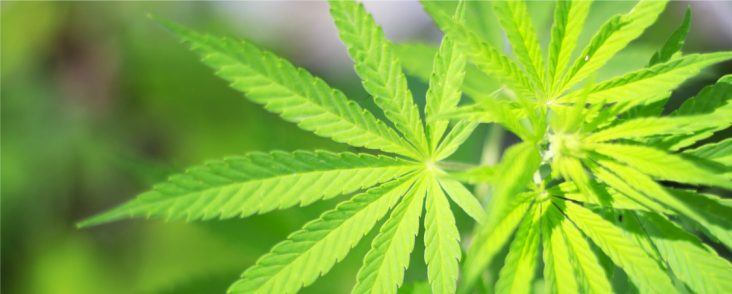Group opposing medical marijuana, say it will lead to broader use
by July 25, 2016 9:23 am 373 views

An effort is forming to oppose ballot initiatives that would legalize medial marijuana, saying it would lead to increased use of the drug and, eventually, full legalization.
The Coalition for Safer Arkansas Communities held an informational meeting Friday that included a message from Terry Benham of Impact Management, who is managing the group’s campaign, Keep Arkansas Safe. The main speaker was Little Rock native and Colorado resident Henny Lasley of Smart Colorado, a group that opposes marijuana legalization in that state.
The Coalition expects to have support from law enforcement personnel, the Arkansas State Chamber of Commerce, educators, and medical providers. The state’s surgeon general, Dr. Greg Bledsoe, opposes the legalization efforts. Gov. Asa Hutchinson also has indicated his opposition to medical marijuana.
An initiated act to legalize marijuana for medicinal purposes has already qualified for the November ballot. Signatures also are being counted for a constitutional amendment legalizing medical marijuana. The two differ in several respects, including that the initiated act includes about 50 medical conditions where the marijuana use would be legal for treatment compared to 14 in the amendment. Only the initiated act contains a provision allowing some patients to grow their own marijuana.
Kenny Hall, executive vice president with the Arkansas State Chamber of Commerce, said his organization’s executive committee decided a month ago to oppose the effort and is considering how best to engage.
He said he didn’t think the law, if it passes, would allow employees to come to work under the influence or bring marijuana to the workplace. However, legalized medical marijuana could make it harder for employers to enforce workplace safety rules and would complicate worker’s compensation claims, which currently can be excluded if an employee has been found to have used illegal drugs or improperly used prescription drugs.
“Then it becomes a matter of, how do you identify the level of influence they may be under in the workplace that would allow you to take action,” he said.
Colorado’s experiences with legalizing medical marijuana show what can happen in Arkansas, said Lasley. In Colorado, medical marijuana was legalized in 2000, and then recreational marijuana was legalized in 2012. Now, marijuana is on track to be a billion-dollar industry in that state, with big money supporters hiring numerous lobbyists to influence policymakers.
Four states – Colorado, Alaska, Washington and Oregon – along with Washington, D.C., have legalized recreational marijuana after first legalizing medical marijuana. According to Governing magazine, a total of 25 states plus D.C. have legalized marijuana in some form.
Lasley said she was “blown away” by Arkansas’ proposed initiated act that has qualified for the ballot because of the many reasons a patient could be prescribed marijuana.
“To me, it was the most expansive medical marijuana piece of legislation that I’ve seen. … I wrote myself a note when I was reading it again yesterday on the airplane, and I said, ‘This is a recreational market that’s getting ready to get opened up in Arkansas,’” she said.
Benham told the group that Arkansas supporters of medical marijuana are part of a national effort to legalize marijuana, and they “need a beachhead in the South.”
Melissa Fults, campaign director of Arkansans for Compassionate Care, the group pushing the initiated act, disputed those contentions. She said that while about half of the money raised by her group has come from national groups, the rest has come from in state. Moreover, volunteers collected most of the signatures required to qualify for the ballot.
“This is not a trojan horse,” she said. “This is not an illusion to have big money. I mean, look at us. We’ve raised a big whopping, I think, $140,000 in two years. Two years. So if we’re looking for big money and big business to come in, you’re looking at the wrong place, because we don’t have it.”
She said her group is not trying to use medical marijuana as a step to legalizing recreational marijuana.
“We only want to get medicine for patients. … To say that, that’s like saying that the pharmaceutical companies created Oxycodone to just be a recreational drug,” she said.
David Couch, sponsor of the competing Arkansas Medical Marijuana Amendment, also said his group is not trying to legalize medical marijuana.
“A trojan horse is something that is hidden. There is nothing hidden in this amendment. This amendment does not authorize recreational use of medical marijuana,” he said.
Couch said legalizing recreational marijuana would require additional action by the Legislature or the voters. He said opponents don’t have good arguments against his amendment, so they are creating allegations.
“Why don’t we have an honest debate on the merits of a physician deciding that a patient would benefit from the use of marijuana and setting up a controlled system to dispense that medicine?” he said.
Lasley said in her presentation that Denver in January 2015 had more marijuana dispensaries than pharmacies, Starbucks and McDonald’s restaurants. As medical marijuana has grown as an industry, its use has grown. She said Colorado’s youth rank number one in the nation for marijuana use. She said 26% of high schoolers regularly use marijuana while only 11% of high schoolers regularly use tobacco.
Meanwhile, she said the potency of the marijuana products has increased significantly. Because of the high concentrations of the product, a small amount of marijuana legally available for purchase can produce a lot of product. Also increasing are the number of products available – 300 food products for sale in her state.
She said marijuana is being sold as a harmless herb when in fact it has health effects – a message echoed by Bledsoe, the state’s surgeon general. He acknowledged that marijuana could have some medicinal value. However, he said the accepted Food and Drug Administration process needs to be followed.
